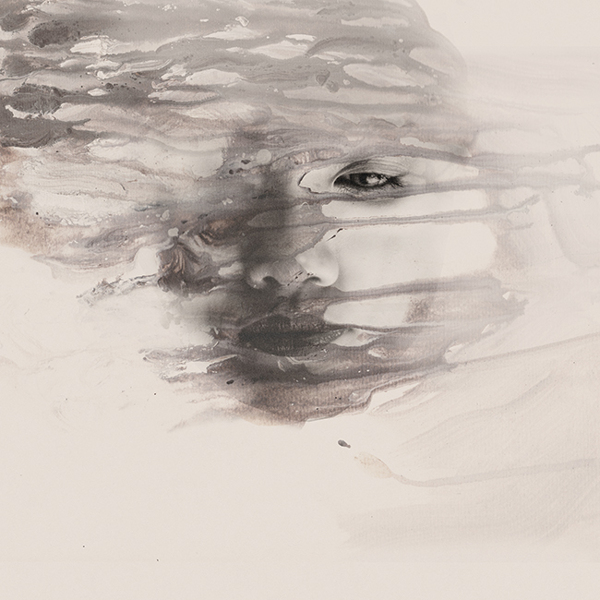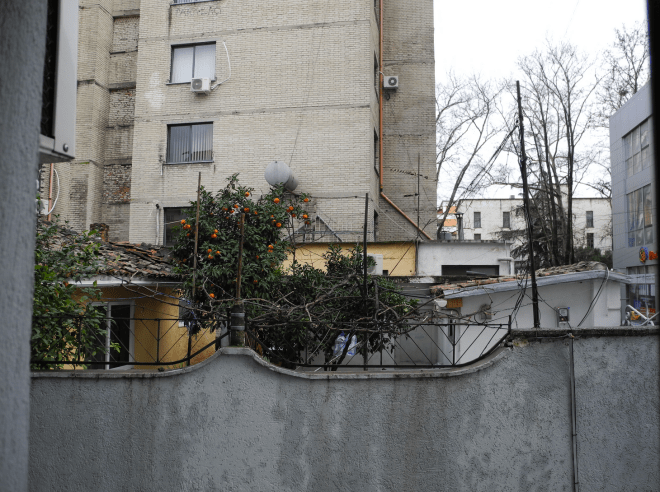La Cinquina-Bufalotta, Italy, 5.40 pm
Month: March 2013
Dear Editor
Maria Bustillos pens a love letter:
There is nothing that can soothe such terrors like the calm and reasonable words of an editor, a professional reader, the wise and honest friend who has the wherewithal and the desire to perfect your work, and apprehend any fugitive viewpoint. The writer who doesn’t understand that a good editor’s interests are entirely aligned with his own is a big idiot, and I leave him, with all the pity in the world, to all his entirely unnecessary sufferings. …
The idea of the Creative Person dropping his wisdom down like manna upon the heads of a grateful public is, I venture to say, really dumb. At least, I’ve never met or heard of a writer of any skill at all who wasn’t far more interested in the genius of the reader than in his own. And yet the idea of the literary genius, the lone visionary unencumbered by any imperatives outside those of his own revelations, is still peddled hither and yon. But not by me! I consider it the height of lunacy. No writing can be any good at all unless people are participating in it together, reading it, and enjoying it, and with any luck quarreling with it and being interested in it and talking about it and making new things out of it.
The Real Housewives Formula
James Parker puts the TV franchise under the microscope:
There are universalities to real housewife–hood: the wincing air kisses with which they greet one another, and the cries of “You look hot!” or “You’re so skinny!”; the shifting alliances and behind-the-back bitcheries; the viperous lunch parties, with their protestations of friendship. But there are differences, too, city to real-housewife city. Atlanta has the most businesslike businesswomen; New Jersey is the most tribal, the families moving in large, noisy packs; Miami’s real housewives throw petals into the sea to rid themselves of negativity; in Beverly Hills they have psychics flush their houses. In Beverly Hills and Miami, too, the plastic surgeon plies most visibly his sinister trade: here we see the stretched eyes and the rubberized smiles, the reaction shots that show no reaction. To be a real housewife is to be in a cage match with middle age. Existence is weightless but, oh, gravity—it drags at the sagging epidermis.
Face Of The Day
Mixed media by Januz Miralles, from the series “Nothing To See Here.”
Why Write?
Author Barry Hannah’s response:
Twenty years ago I was out in the woods alone. The weather was clear and very cold, but felt good. I had a Pall Mall in my hand and I walked into an old abandoned cabin of the Roosevelt era. Inside the cabin was just a bit warmer than out. A dusty tin bed with a thin mattress on brown springs. I wanted to light the Pall Mall very badly but I waited a while for the dark. The hairs of a feral dog lay in a circle on the planks in front of the hearth. In the last grip of faint grays, I lit the cigarette and the smoke felt exquisitely good inside me. I knew I was pledged to something. This lonesomeness, this cold lost place I would soon warm up. Nobody knew where I was, nobody. It wanted to be lived in here. I knew life would be sad but quite fine then. I felt a hum of joy in my head. Like some old muttering conquistador stumbled up with a flag to ram the staff into God knows what mud.
Forever afterward I would crave abandoned rooms in lost places, me with my pencil and paper. I would mount a small country here. The frame was already there, you were not really a conquistador, let’s not kid our girlfriends. But you would warm up and put something in this hole. It might leak a little bit but it would be yours. From all my military readings I have gleaned the comment most pertinent to me and the gals and pals desperately given over to the writing life. The writer meant Korea and Vietnam, but he put his truth to the exact same glory and grief of our efforts: It’s the war we can’t win, we can’t lose, we can’t quit.
I’m waiting, however, for the future priest to be kicking around the shards of our old cabins. He finds some pages. My God, it’s paper, ancient paper. He bends over, holding the cigarette pack-size computer to his shirt pocket so it won’t fallout. Poor devils, the old scribes, jabber jabber, yadda yadda, he says.
But wait, this is pretty good.
Why Does Marriage Deepen Love? Ctd
In a review of Barbara Fredrickson’s Love 2.0, Barry Schwartz latches on to another theory:
“Do you love your spouse?” becomes the wrong question; “Are you loving your spouse?” is the right one.
A critic might quarrel with Fredrickson for calling these moments of resonance “love” rather than something else. Why not keep “love” as we have always used it and coin a new term for the moments of positivity that Fredrickson is talking about? I don’t think this is a big deal, but, aside from helping to sell books, the virtue of redefining love in this way is that it encourages people to think hard about whether what they’ve been doing in the service of love is actually meeting its objective. And I can’t overemphasize how striking the evidence is that Fredrickson marshals in support of her position. Not just psychological evidence, which would be important enough. But also neural evidence, neurochemical evidence, cardiovascular evidence, and even evidence of effects on gene expression. This line of work may end up changing both what we mean by love and what we take as evidence for love and its effects.
The View From Your Window Contest
You have until noon on Tuesday to guess it. City and/or state first, then country. Please put the location in the subject heading, along with any description within the email. If no one guesses the exact location, proximity counts. Be sure to email entries to contest@andrewsullivan.com. Winner gets a free The View From Your Window book. Have at it.
Letters On Lockdown
Former prison librarian Avi Steinberg describes why teaching creative writing in prison is so important:
Many people who came to my classes were eager to improve their skills at writing letters. Prison is a lot like the 19th century. Letter writing continues to thrive there. There is a particular urgency to writing in prison—a letter is the difference between having a relationship with a person on the outside or not. Writing is the relationship. Like those old Victorian letters, the prose itself is heated by this dynamic.
There are so many ways in which creative writing is suppressed in prison.
So much of writing in prison is associated with sheer malice and with legal warfare (inmates and staff members are constantly writing grievances and incident reports). There is little free speech in prison and no private property. Your cell can be searched at any time and your writings can be confiscated. Anything you say can and will be used against you—that’s the literary culture of the place.
And suppression could come in other, less obvious forms. Many inmates had gone through addiction recovery programs that incorporate writing assignments into their regimens. Perhaps this kind of writing serves its therapeutic purpose but, from a literary perspective, it’s stifling. It trains people to tailor their stories to the tastes of recovery-think, and to strangle these stories with the homogeneous language of the program. After I saw the 10th consecutive essay that described how someone had “hit rock bottom” I realized that I would have to figure out how to get my students to write in their own voices.
Brainstorming A Blockbuster
When they were coming up with the details for Raiders of the Lost Ark, George Lucas, Steven Spielberg, and writer Lawrence Kasdan recorded their spitballing sessions, and a transcript (pdf) is now available online. Patrick Radden Kaffe is fascinated:
As the screenwriters Craig Mazin and John August pointed out recently on the Scriptnotes podcast, one delight of reading the transcript is watching Spielberg throw out bad ideas, and then noting how Lucas gently shuts him down. Spielberg, who had sought to direct a Bond movie—and, astonishingly, been rejected—thought that their hero should be an avid gambler. Lucas replied that perhaps they shouldn’t overload him with attributes. (Lucas himself had briefly entertained, then mercifully set aside, the notion that his archaeologist might also be a practitioner of kung fu.) There’s a good reason we seldom get to spy on these conversations: really good spitballing, like improv comedy, requires a high degree of social disinhibition. So the writers’ room, like a therapist’s office, must remain inviolable.
Spielberg fires off ideas with an adolescent’s stamina—and not all of them are bad, either. In fact, among his spontaneous interjections are some of the most iconic episodes in the film. “I have a great idea!” he exclaims. “There is a sixty-five-foot boulder, that’s form-fitted to only roll down the corridor, coming right at him. And it’s a race. He gets to outrun the boulder!”
A Plagiarism Pandemic?
Following the revelation that one of their editors had “plagiarized whole sections of a 13,000-word music guide,” the arts and culture site Brightest Young Things has taken down all of its content for a full audit. Roy Peter Clark, meanwhile, downplays claims that plagiarism is suddenly more of a problem that it used to be:
I smell a whiff of panic in the air. My colleague Craig Silverman dubbed the summer of 2012 — for its several literary transgressions — as the “Summer of Sin.” He cites “a cavalcade of plagiarism, fabrication and unethical recycling.” But he might just as well have written about 1981 when the “Jimmy’s World” scandal at the Washington Post rocked the journalism world. He might have time-traveled to 1934 and listened to city editor Stanley Walker complain about how many young reporters were “faking” their stories.
I see no persuasive evidence that literary abuse is more common today than in yesteryear. In the cut and paste culture of digital technology, plagiarism may be easier to commit, but it is also easier to detect. Standards may appear in decline when, in fact, media crime fighters such as Silverman are simply more assertive and armed with better Geiger counters.


